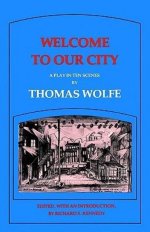I'm currently working on a little Nobel project and part of that is trying to find out the exact dates each prize was announced. This is involving me digging into UK newspaper archives for mentions of reports, and I just thought, as I do so, that it would be cool to post up any little snippets I find that may be interesting.
Here's one I found about Grazia Deledda from the Dundee Evening Telegraph on 16th November, 1927, since she was awarded the 1926 prize a year later. Bernard Shaw, the 1925 laureate, was awarded in 1926. This is because in 1925 none of the nominations were worthy enough to win the prize and so it carried over a year. Seems the same happened the following year putting it out of sync for a couple of years. It was resolved in 1928 when both Henri Bergson and Sigrid Undset were recognised, for 1927 and 1928 respectively.
Shaw didn't outright reject the prize, it seems, but donated it the foundation of the Anglo-Swedish Literary Foundation.
Here's one I found about Grazia Deledda from the Dundee Evening Telegraph on 16th November, 1927, since she was awarded the 1926 prize a year later. Bernard Shaw, the 1925 laureate, was awarded in 1926. This is because in 1925 none of the nominations were worthy enough to win the prize and so it carried over a year. Seems the same happened the following year putting it out of sync for a couple of years. It was resolved in 1928 when both Henri Bergson and Sigrid Undset were recognised, for 1927 and 1928 respectively.
NOBEL PRIZEWINNER'S PLANS
Signora Grazia Deledda, the Italian novelist, who has been awarded the Nobel Prize in Literature, says that she will devote the prize, which amounts to between £5000 and £6000, to the economic necessities of her family.
Signora Deledda is not rich. Although she has written a score of books, she has received very little from her publishers, and is by no means independent of the income of her husband, who is employed in Rome. They have three children, and much as she appreciates the action of Mr Bernard Shaw in declining the prize money, she points out that he is a rich man.
Her husband says that [she] has been a candidate for ten years. She will go to Stockholm to receive the prize.
Shaw didn't outright reject the prize, it seems, but donated it the foundation of the Anglo-Swedish Literary Foundation.
Last edited:

